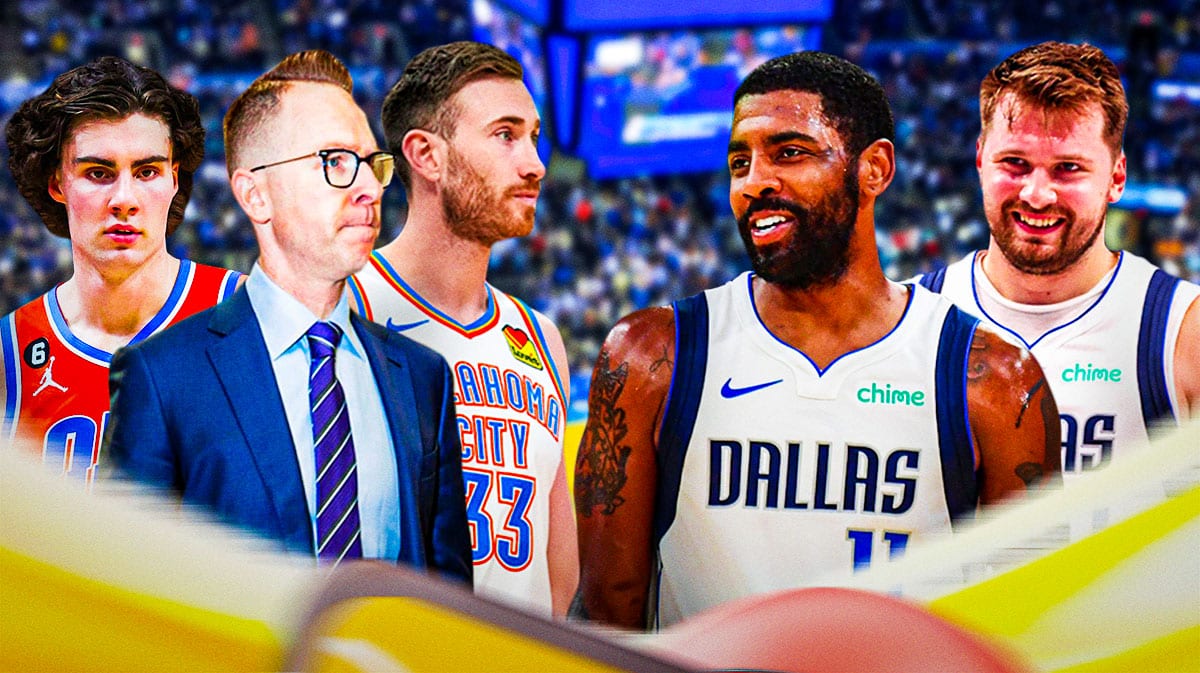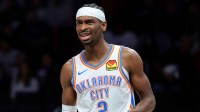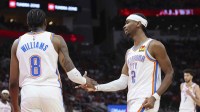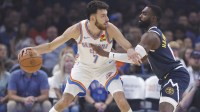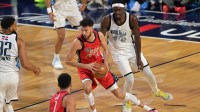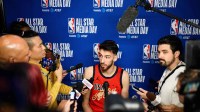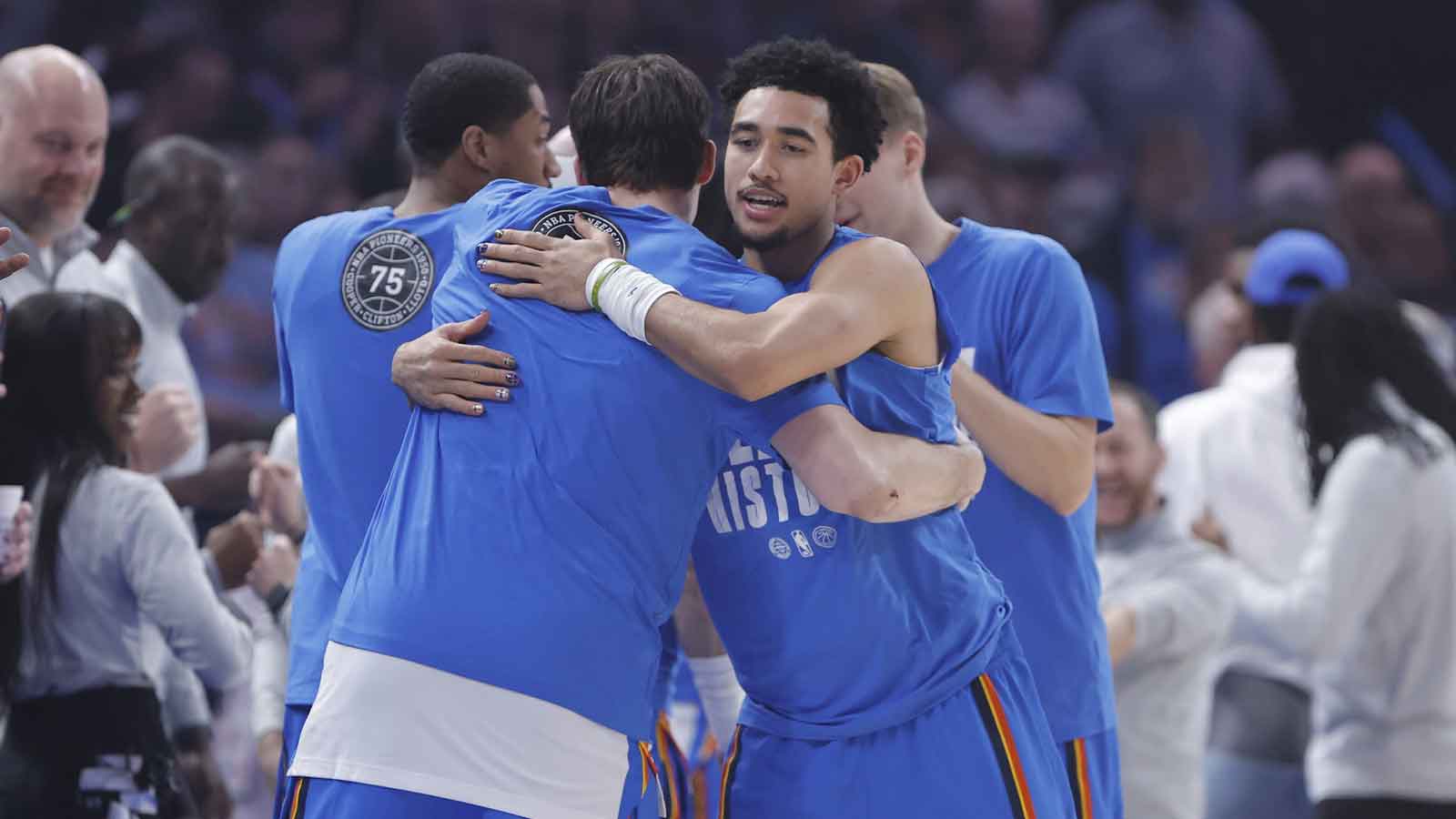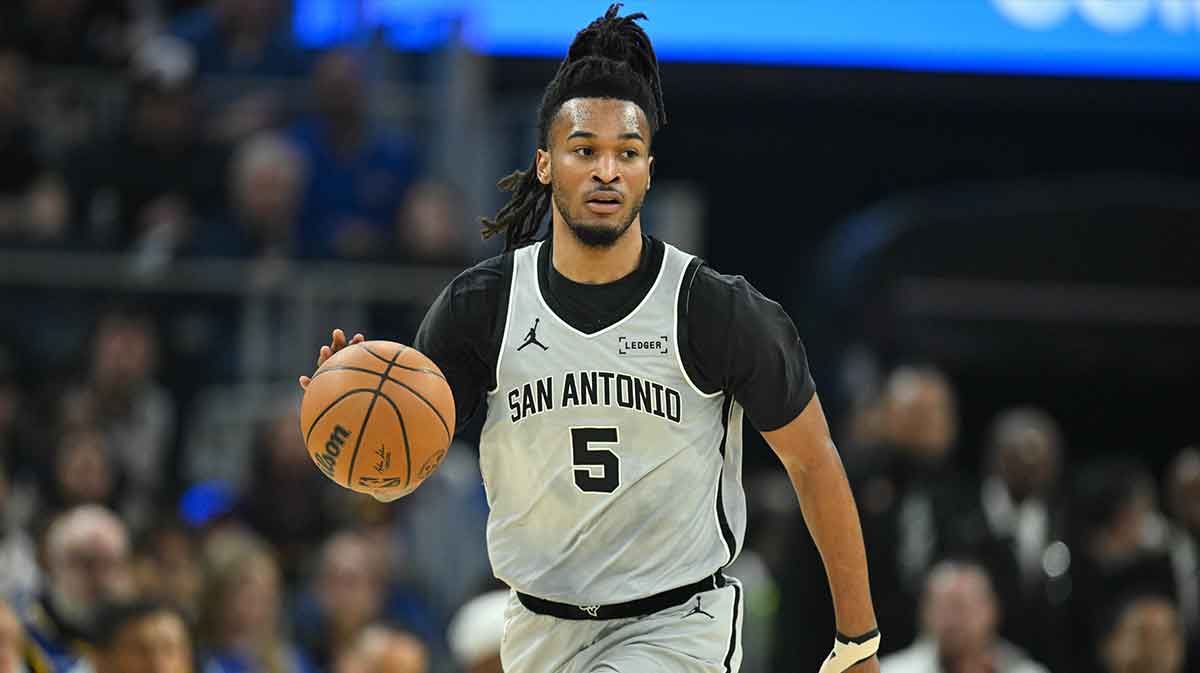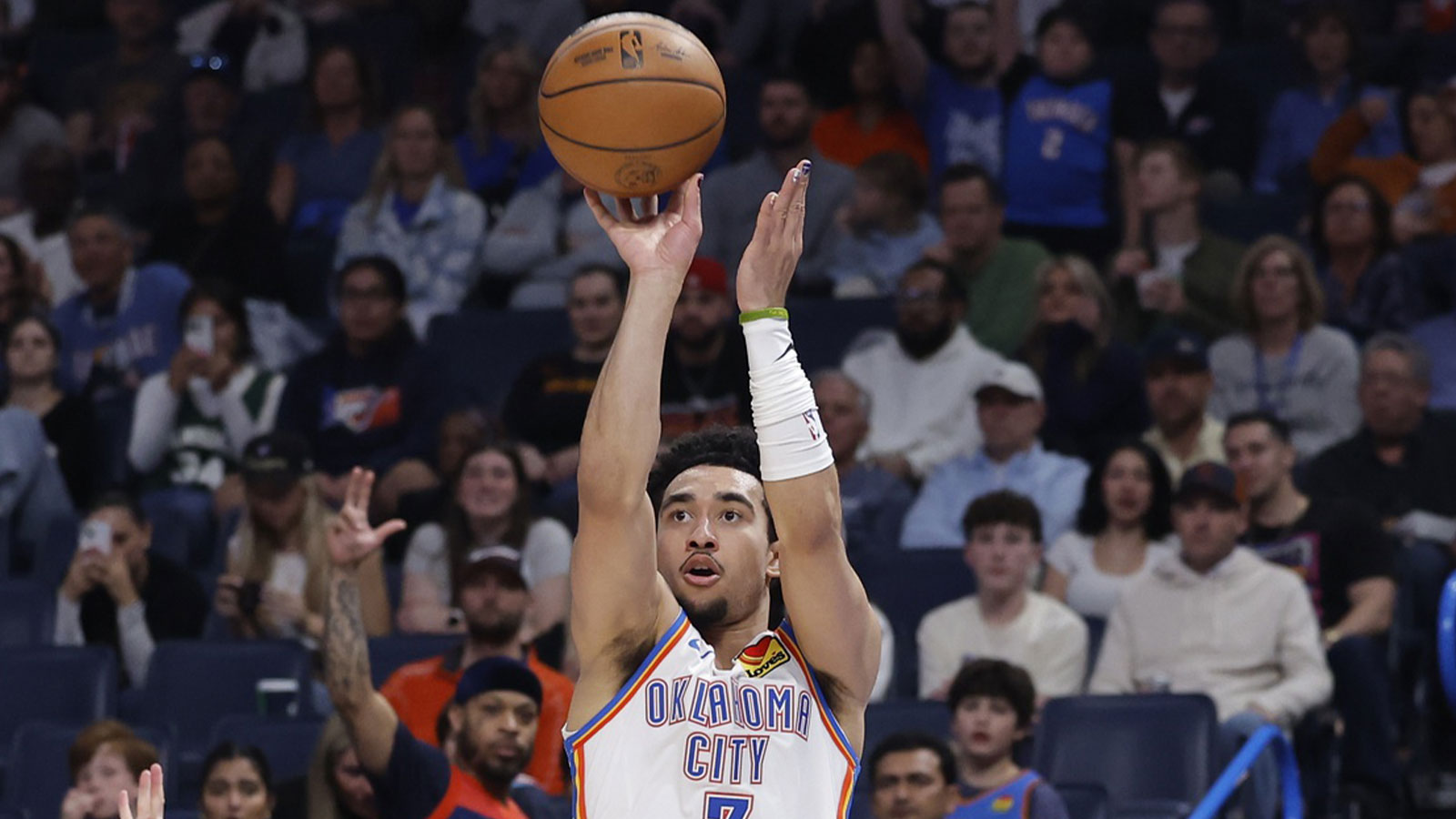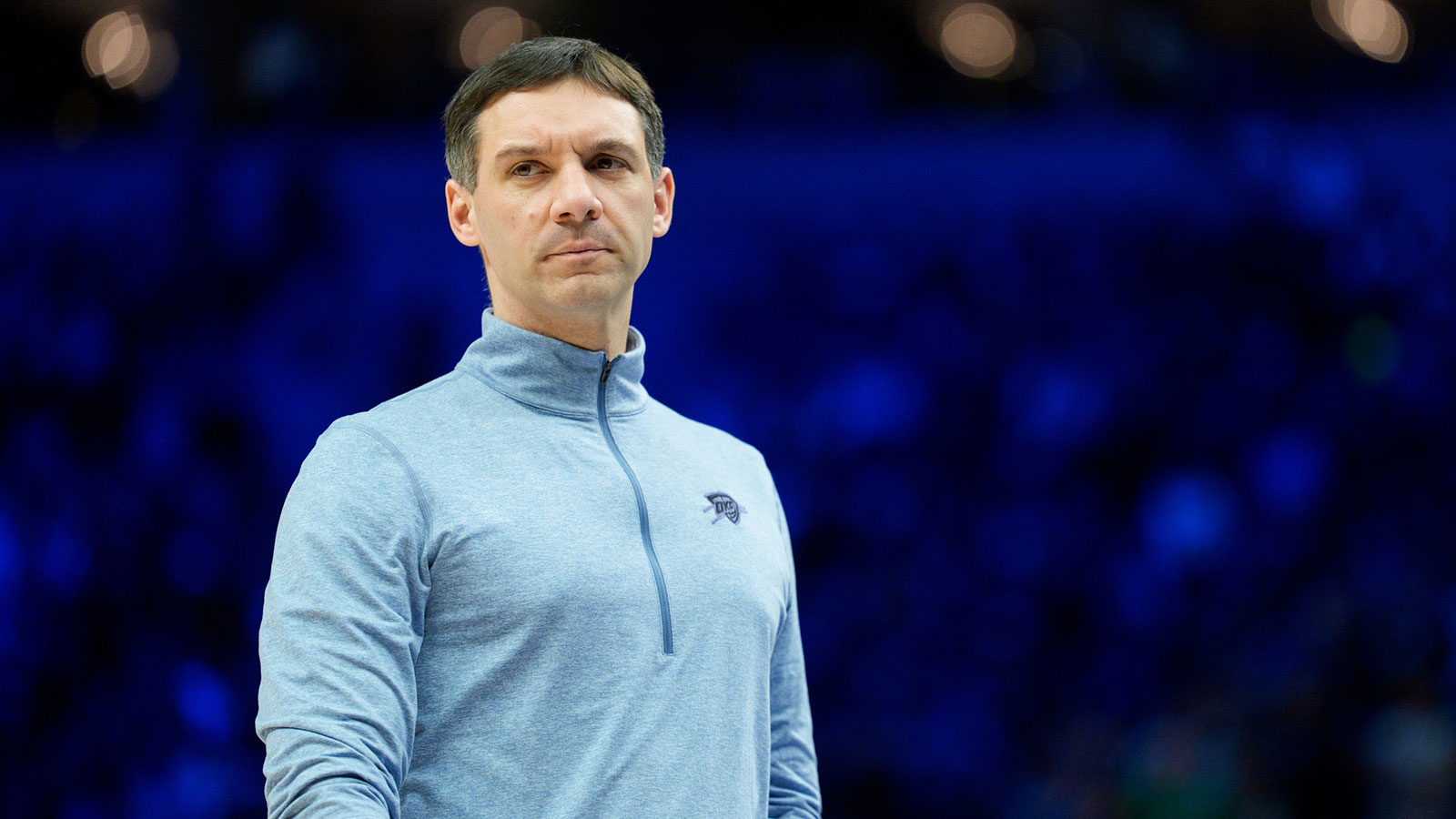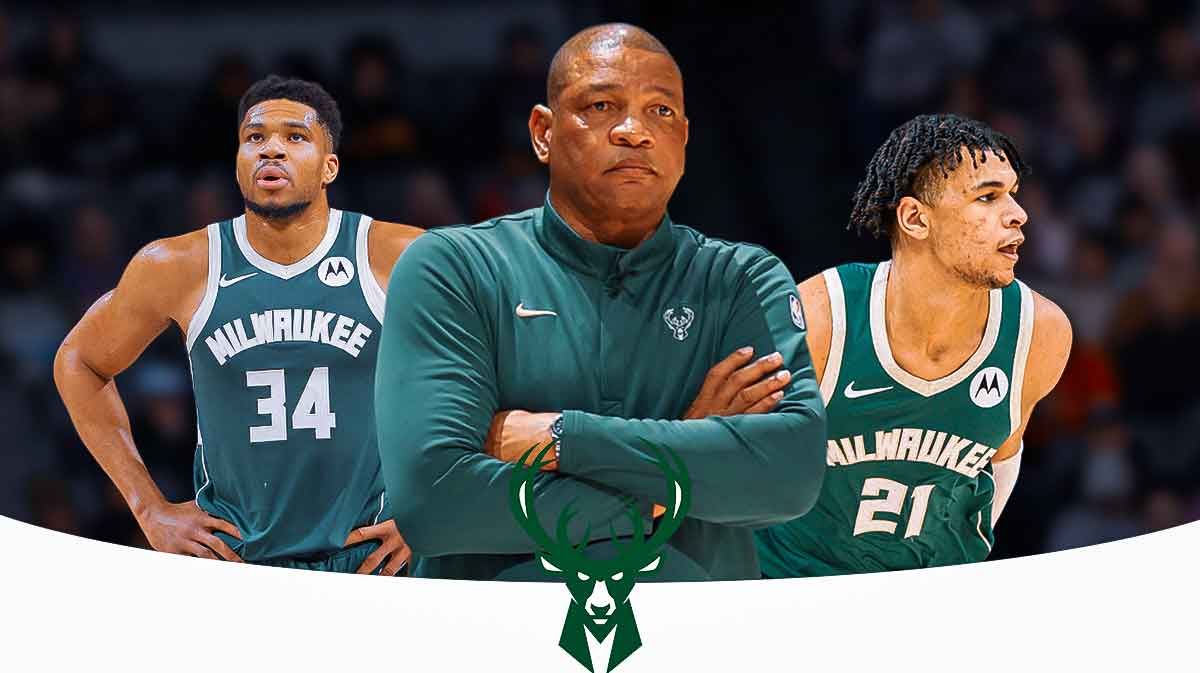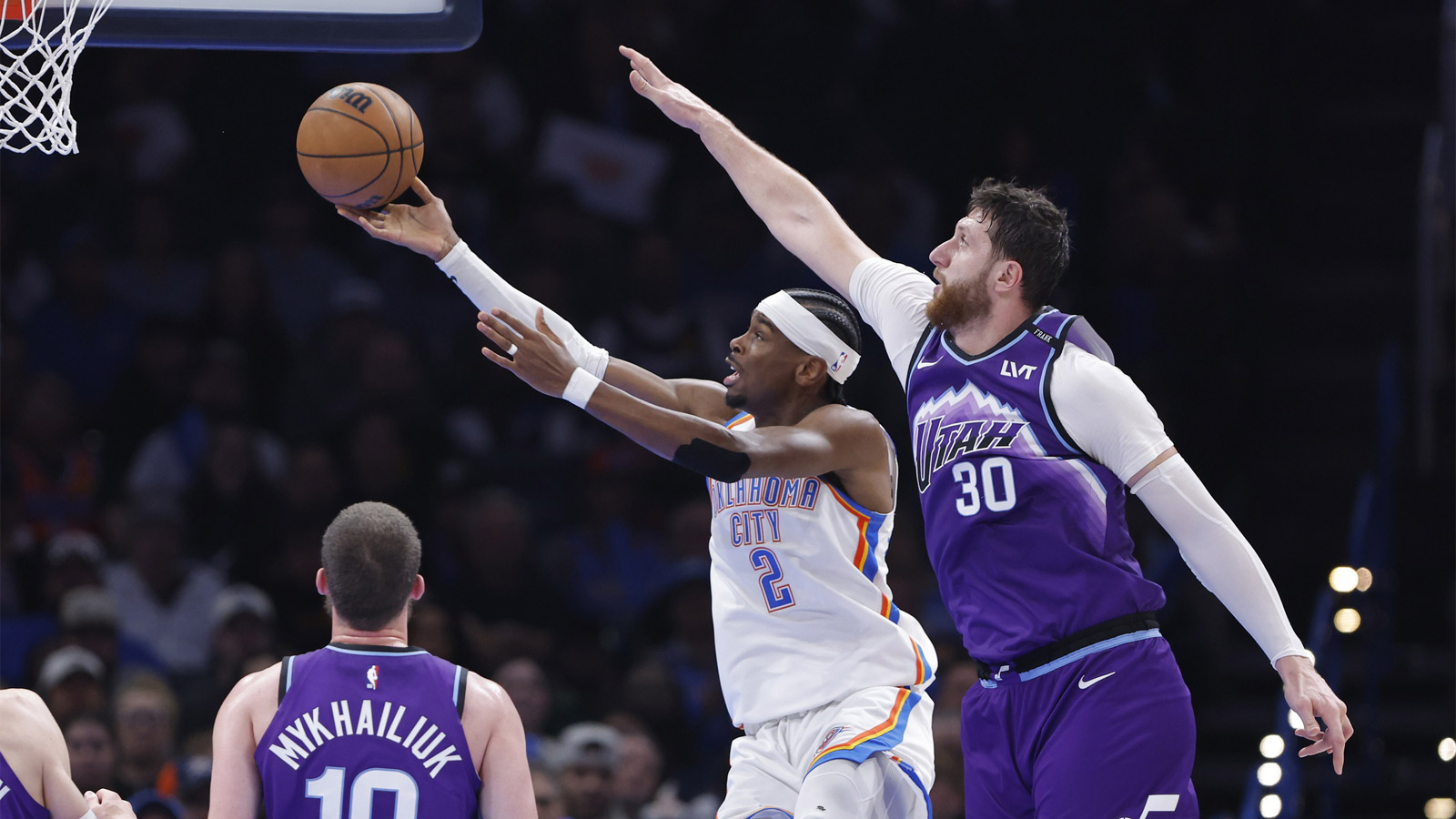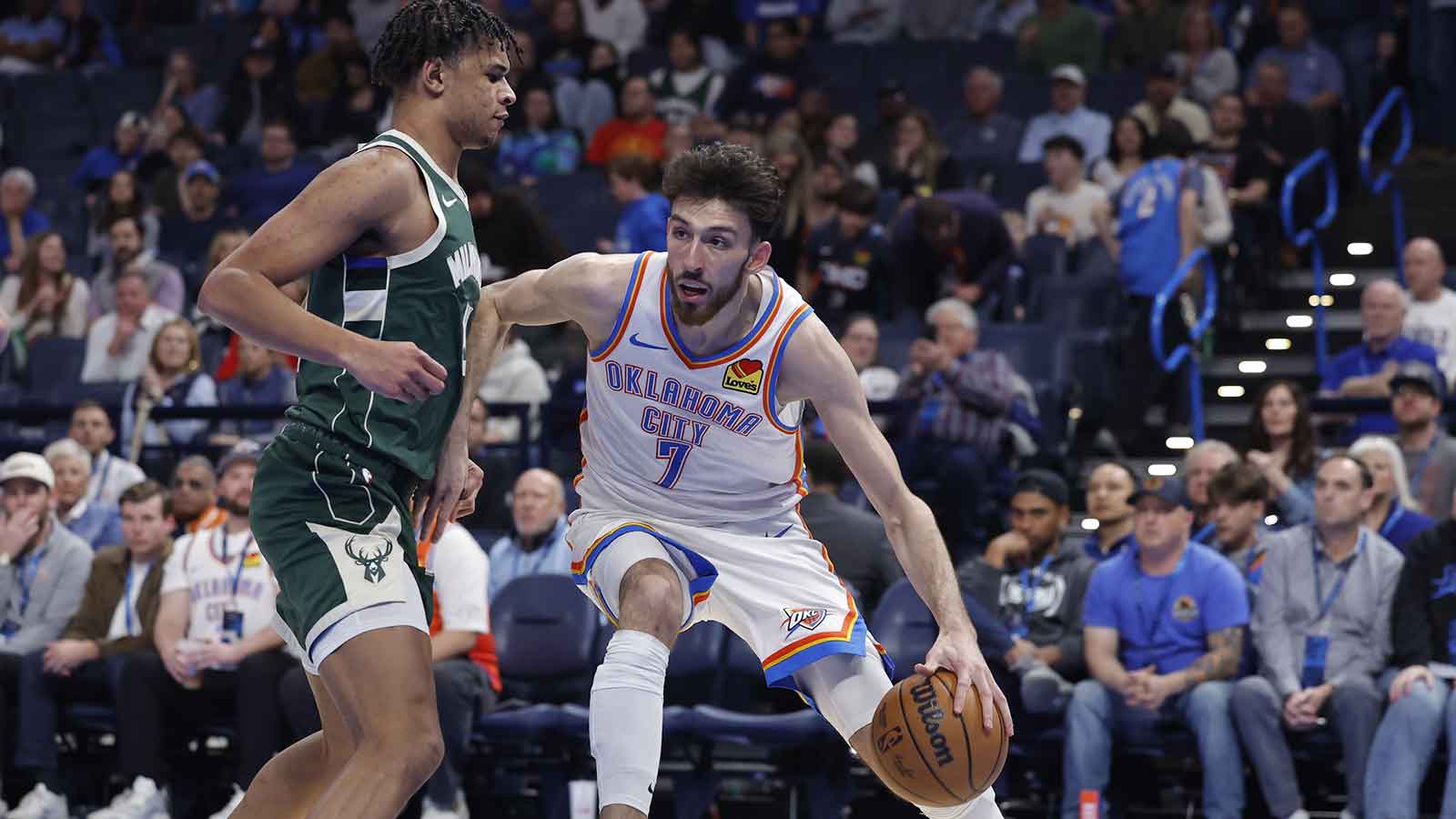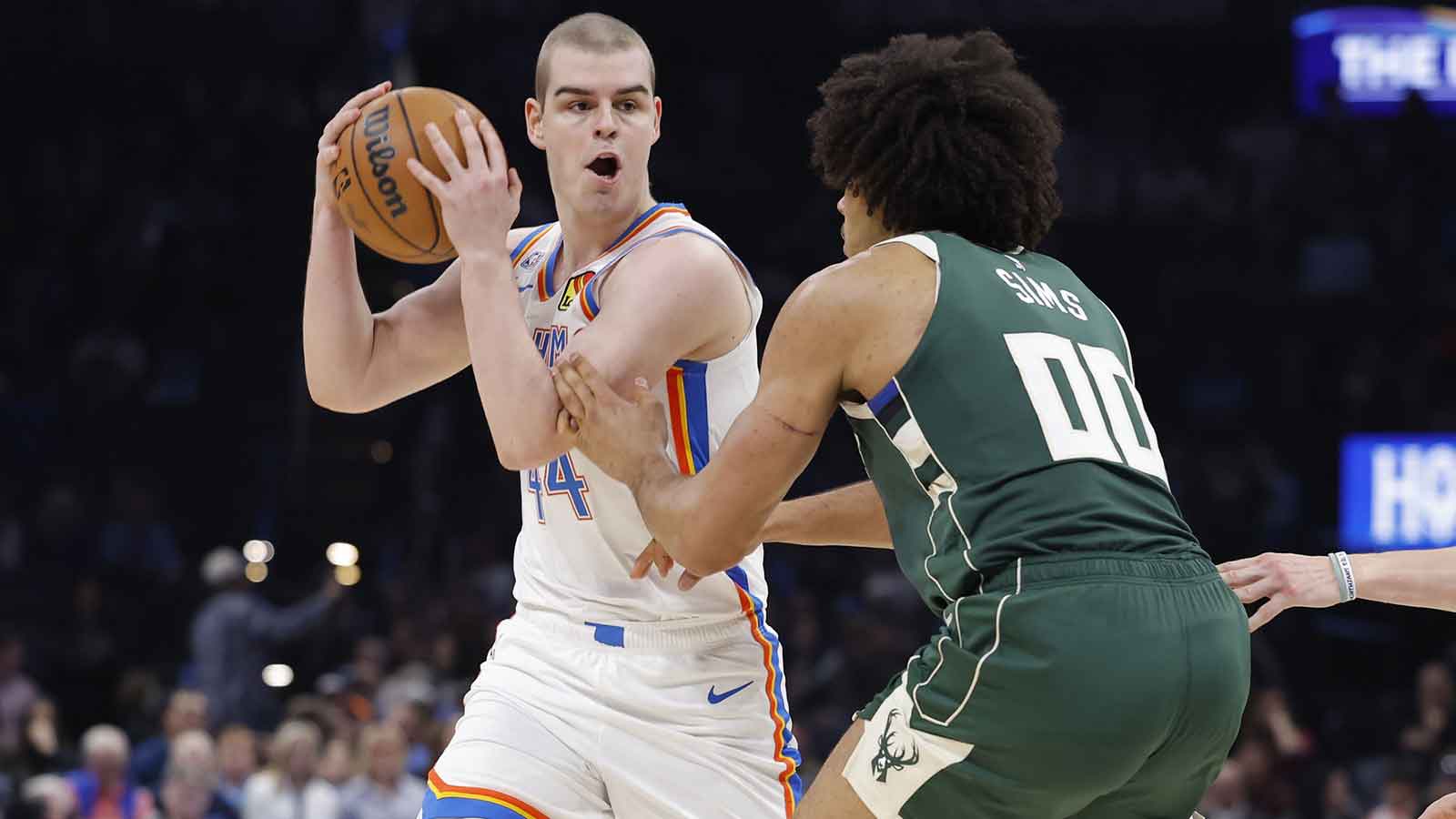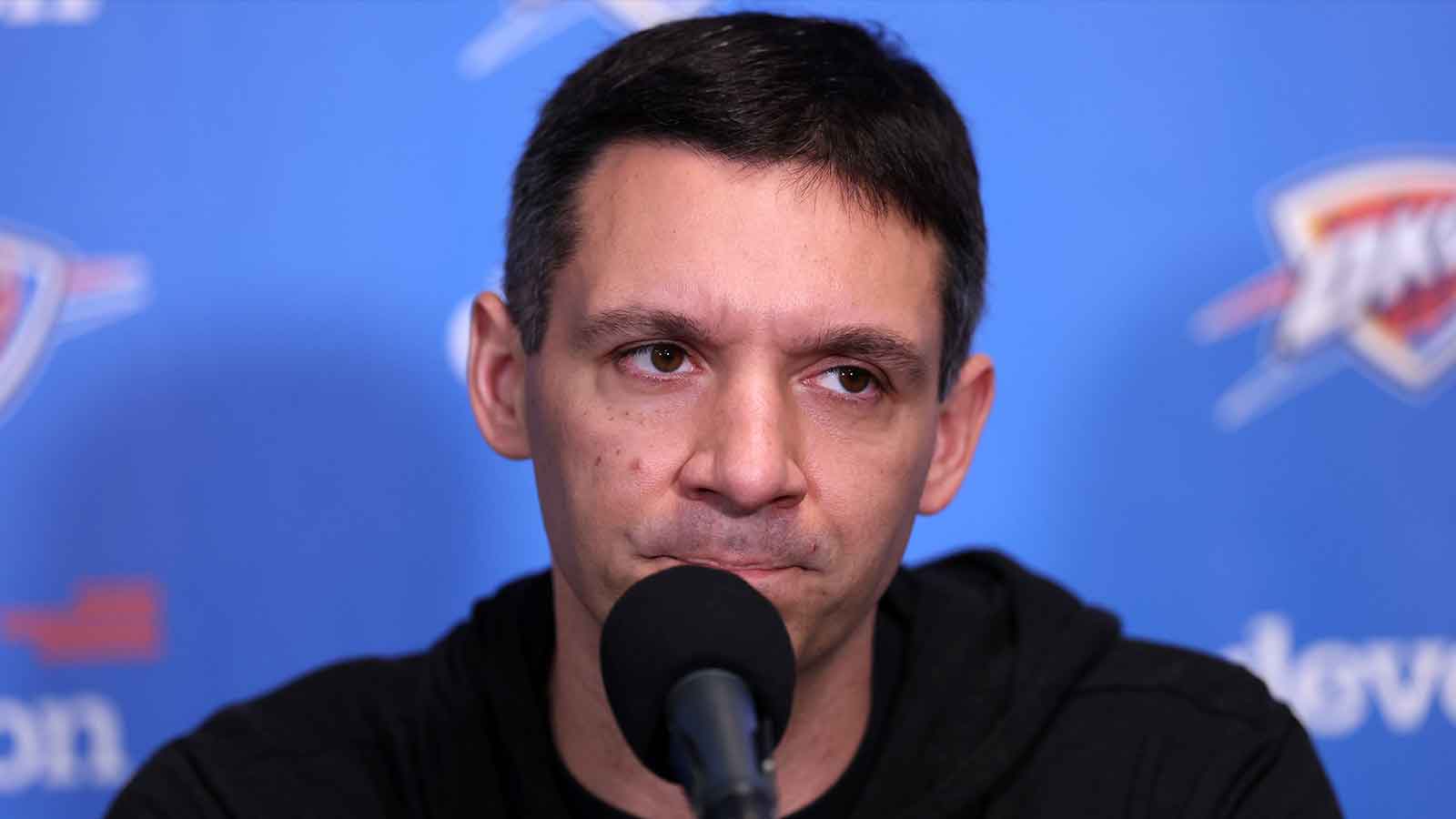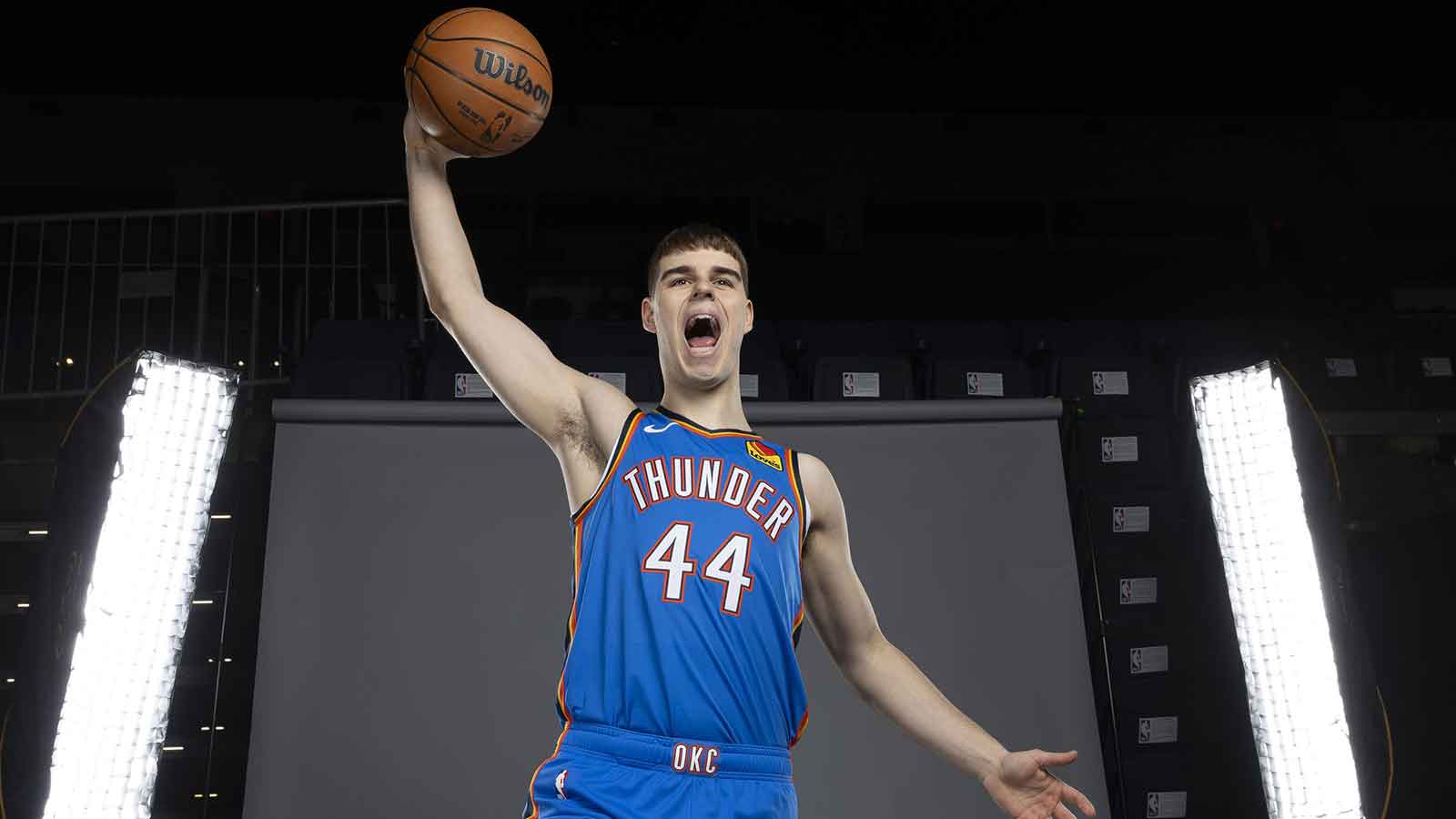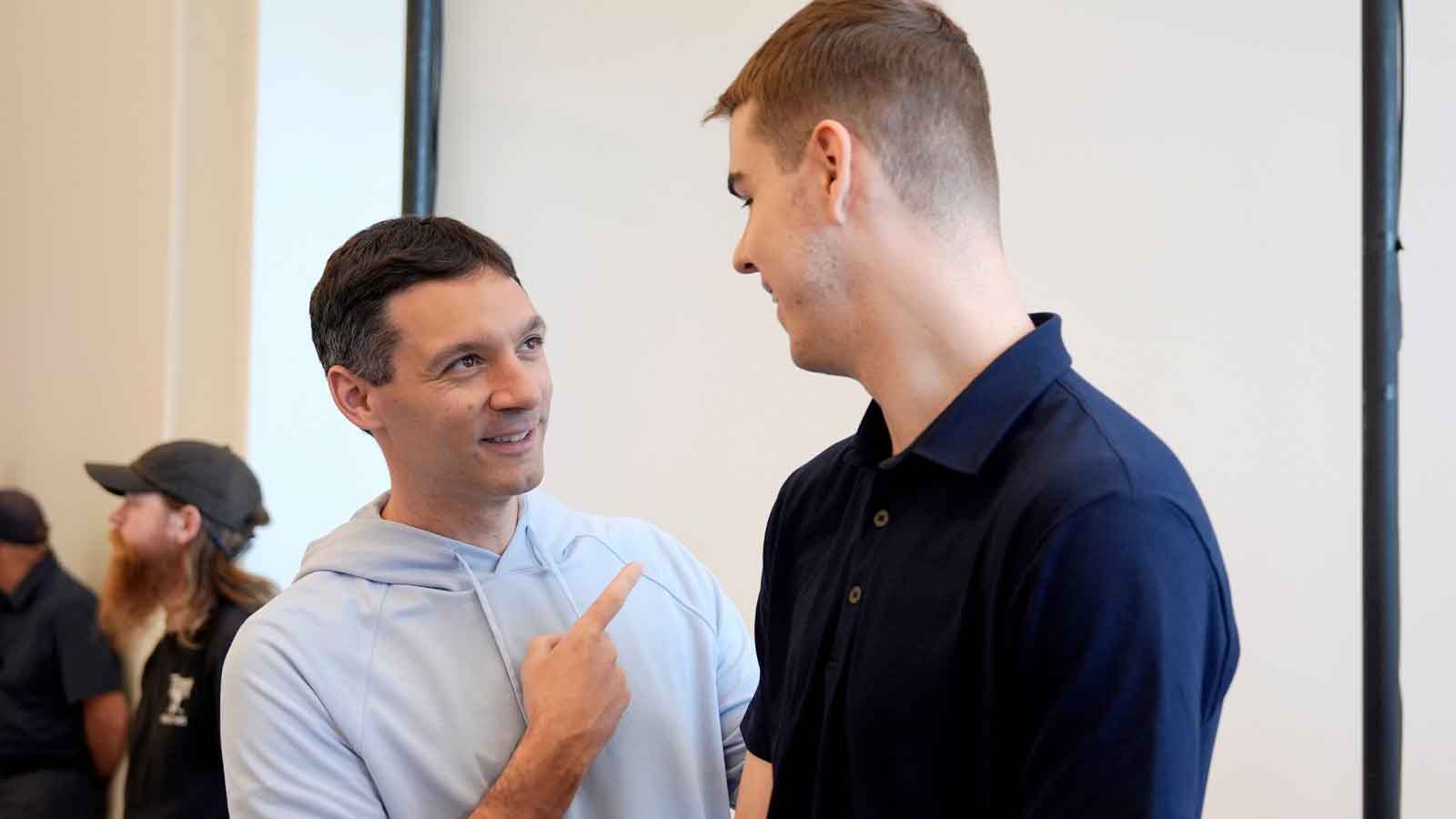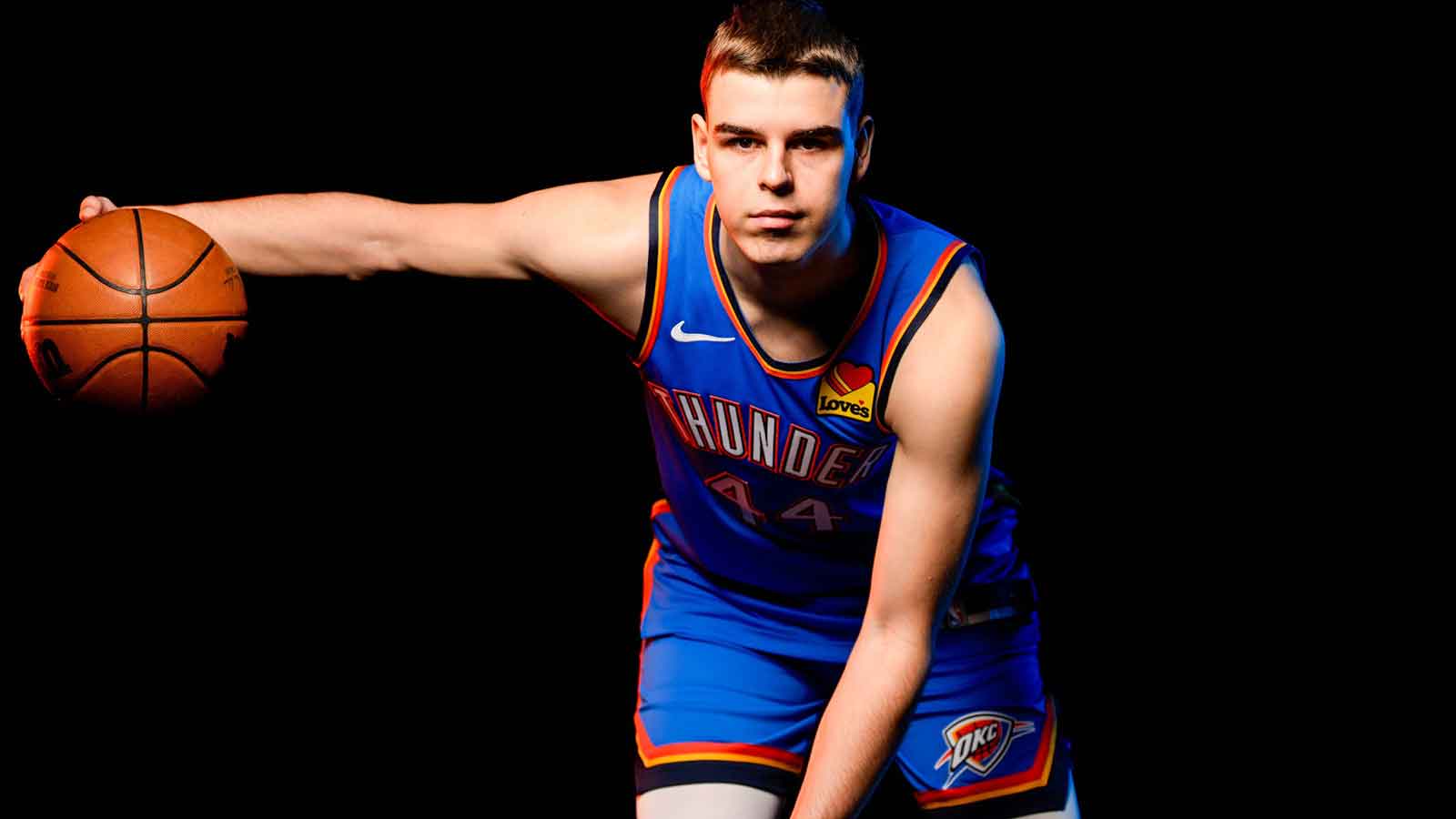Don't lose sight of the forest through the trees. Falling to Luka Doncic, Kyrie Irving and the revamped Dallas Mavericks in a hard-fought Western Conference Semifinals is still an extremely encouraging sign of the Oklahoma City Thunder's present and future despite knee-jerk disappointment.
It wasn't even two weeks ago that Oklahoma City absolutely dominated the shorthanded New Orleans Pelicans, earning a first-round sweep to become the youngest team ever to win a playoff series. The better side indeed won in the second round, but the Thunder nevertheless came within a last-second, controversial shooting foul on Shai Gilgeous-Alexander of forcing a winner-take-all Game 7 back in Brick City.
Looking for a less obvious silver lining then Oklahoma City's historic youth and early spot on a typical team-building timeline? The Thunder came close to beating a team featuring a perennial MVP candidate and one of this generation's most proven playoff performers that has already pushed close to all-in for a championship despite those developmental realities.
Jalen Williams and Chet Holmgren are bound to be better a year from now, let alone three. Gilgeous-Alexander just passed his first test of extended playoff basketball with flying colors. There's more growth to come from Cason Wallace, Jaylin Williams and even a 2023-24 afterthought like Ousmane Dieng. Oklahoma City's horde of extra first-round picks will eventually be much more than theoretical.
But proud as they should be of a wildly successful season and bright as their future remains, the Thunder still could've done more to take down the Mavericks and advance to the Western Conference Finals. Here's who's most to blame for Oklahoma City's loss to Dallas.
Josh Giddey
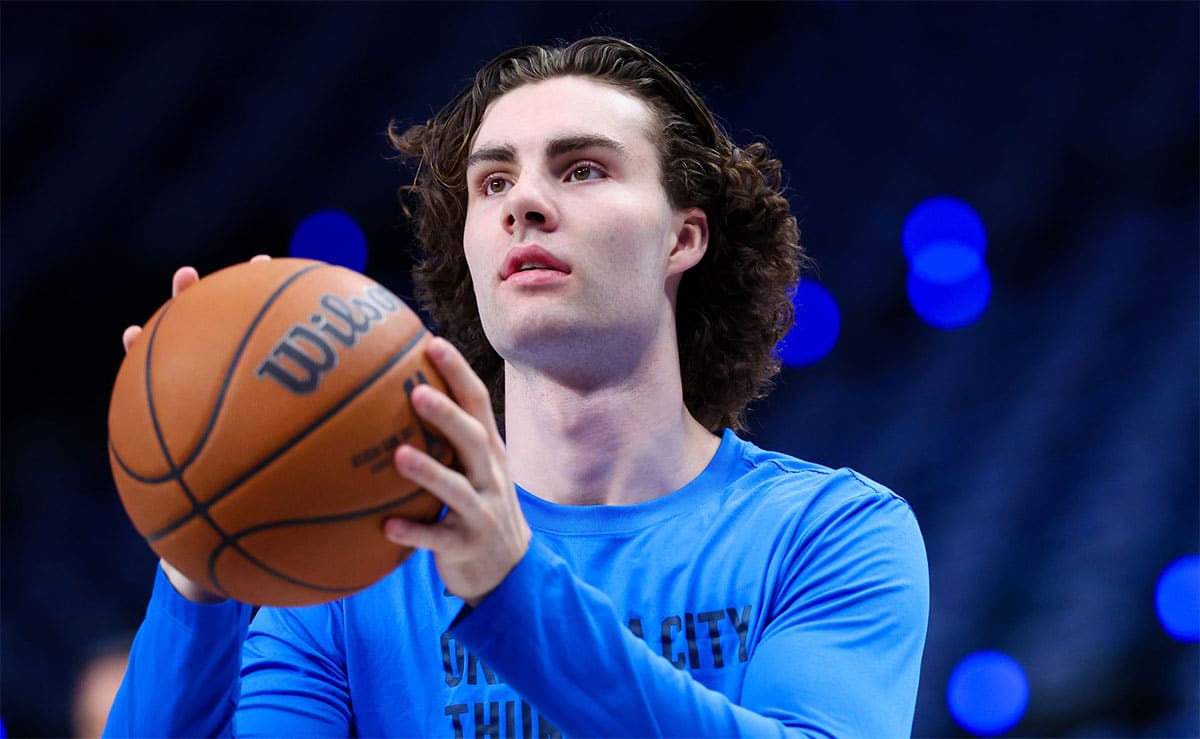
No one was surprising internally or externally when the Mavericks took advantage of Giddey's stark two-way deficiencies under the postseason microscope. Opponents had been daring him to shoot while overloading towards primary actions and targeting him on the other end for months leading up to the playoffs, picking at the Thunder's most glaring weakness on a near nightly basis.
Mark Daigneault benched Giddey for the second half of Game 4, then started Isiah Joe in his place for the last two games against Dallas. That long anticipated lineup change helped mitigate the negative extent of Giddey's presence, but much of his damage had already been done. Oklahoma City was outscored by 23 points in Giddey's 75 total minutes in the second round, good for a -14.7 net rating, per NBA.com/stats. No other player in Daigneault's regular rotation sported a net rating worse than Jaylin Williams' -7.6.
There's no deflecting from Giddey's square-peg fit with the Thunder anymore. He's not an additive enough playmaker to compensate for his inability to space the floor, nor a sound enough help defender or good enough defensive rebounder to offset his status as prey at the point of attack—shortcomings that had already been laid bare across the 82-game grind. Maybe the most predictable player-specific postseason result league-wide is that they'd be exploited even further against a quality opponent.
It's time for the Thunder to act like contenders, beginning with moving on from Giddey this summer.
Gordon Hayward
Oklahoma City was under no delusion Hayward was the same player who starred with the Utah Jazz when acquiring him at the trade deadline. All the Thunder needed from him was for Hayward to be a reasonable facsimile of the steadying veteran presence who averaged 14.5 points, 4.7 rebounds and 4.6 assists on solid efficiency with the Charlotte Hornets before going down with a calf injury in late December.
It bears stressing that Hayward hadn't played since December 26th upon making his Oklahoma City debut roughly two months later. Even 14-year veterans need time to re-acclimate after missing a significant chunk of the schedule due to injury, let alone while learning their new team's system, style and principles. But even the minority that doubted his ability to be a playoff difference-maker couldn't have envisioned Hayward being virtually unplayable when the Thunder needed another warm body most.
Hayward got two stints of time in the opener against Dallas, then a single run of play in the next two games before being benched for good. Fifteen minutes across three games is hardly enough time for any player to get his postseason sea legs, but Hayward's refusal to shoot and two-way passivity versus the Mavericks was simply more of the same from the regular season. He just never came close to getting comfortable with Oklahoma City, his confidence fading seemingly every time he took the floor.
“Disappointed with how it all worked out. Certainly frustrating,” Hayward said Sunday of his time with the Thunder, per Joel Lorenzi of The Oklahoman. “As a player, I have a lot to offer. I just wasn’t given much of an opportunity to do that.”
Hayward averaged 17.2 minutes per game with Oklahoma City during the regular season, right in line with Joe and Aaron Wiggins' allotments after the All-Star break. He took exactly one shot and went scoreless against the Pelicans in the first round despite beginning every game of the series as a member of the rotation.
Daigneault was searching for reliable two-way contributors who took little off the table behind Gilgeous-Alexander, J-Dub and Holmgren throughout his team's matchup with Dallas. Nothing Hayward ever did with the Thunder indicated he could fill that role, among the primary reasons their season ended in the second round.
Sam Presti
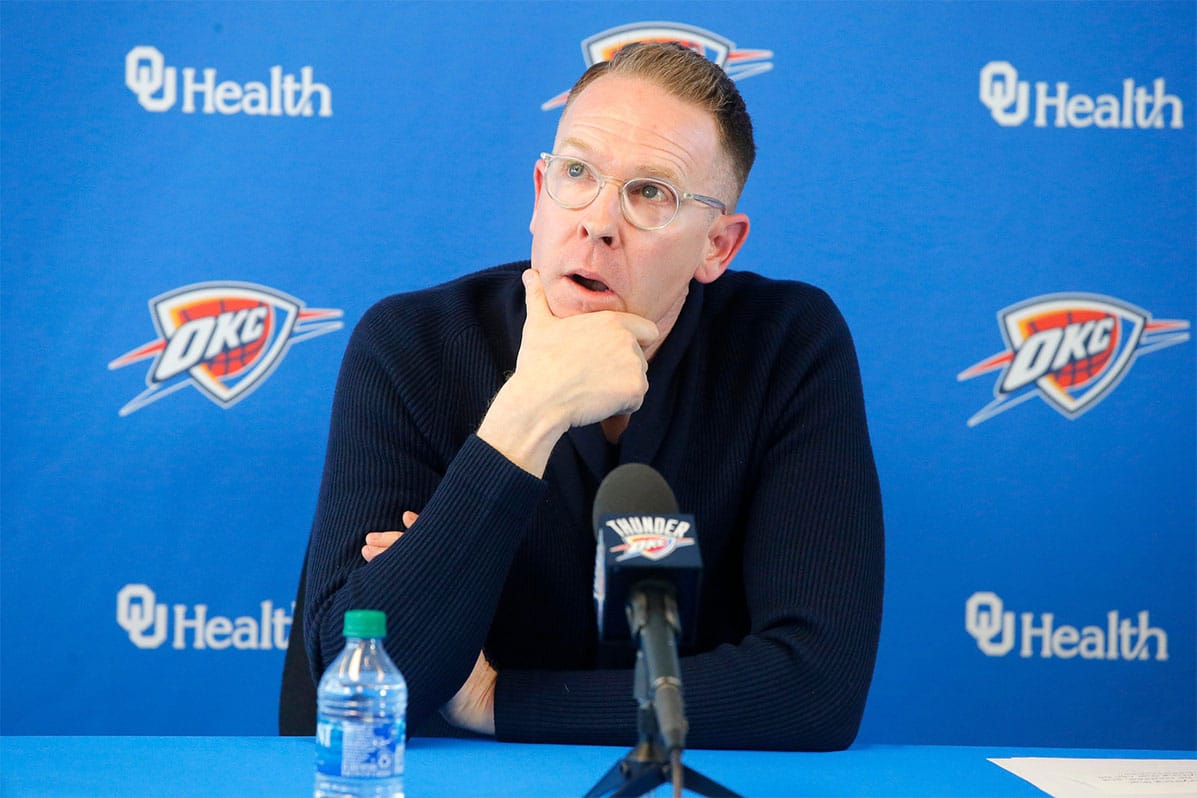
Presti gave away the game with regard to Oklahoma City's team-building approach in November, when it was clear the Thunder were well ahead of schedule.
“I'd rather not be in the business of predictions,” he told ESPN's Tim MacMahon, “but I think with where we are, it's mostly about observations. And we're good with that…I'm not trying to dismiss everyone's excitement, but we're not a .500 team. We have to finish our breakfast before we start acting like we're on the cusp of something.”
As the trade deadline loomed a few months later, it was impossible to ignore the Thunder really were “on the cusp of something,” perhaps as soon as April, May and June. But instead of dipping into his cache of future draft assets or selling early on Giddey to improve his team's chances of making a deep postseason run, Presti maintained that organizational edict of prudent patience, merely trading seldom-used bench players and a pair of second-round picks to Charlotte in exchange for Hayward.
More damning? The Thunder facilitated Dallas' acquisition of Daniel Gafford by trading their 2024 first-rounder for swap rights on the Mavs' 2028 first-round pick, then stood and watched idly as Nico Harrison brought in PJ Washington from the Hornets.
Those moves completely turned around Dallas' season, with Gafford's rim-protection and Washington's spot-up shooting and versatile defense looming extremely large in its second-round victory over Oklahoma City. Both players were frequently mulled as trade deadline targets for the Thunder, too, with Washington especially serving as a snug on-paper fit for what Oklahoma City lacked in terms of size, athleticism and overall talent at forward.
Presti deserves immense credit for turning the Thunder into basketball's undisputed best young team just a few years after hitting the reset button by trading Paul George and Russell Westbrook. His steadfast slow-playing of Oklahoma City's rebuild grew stale this season, though, leaving the Thunder a piece or two short of the personnel needed to make the Western Conference Finals.

